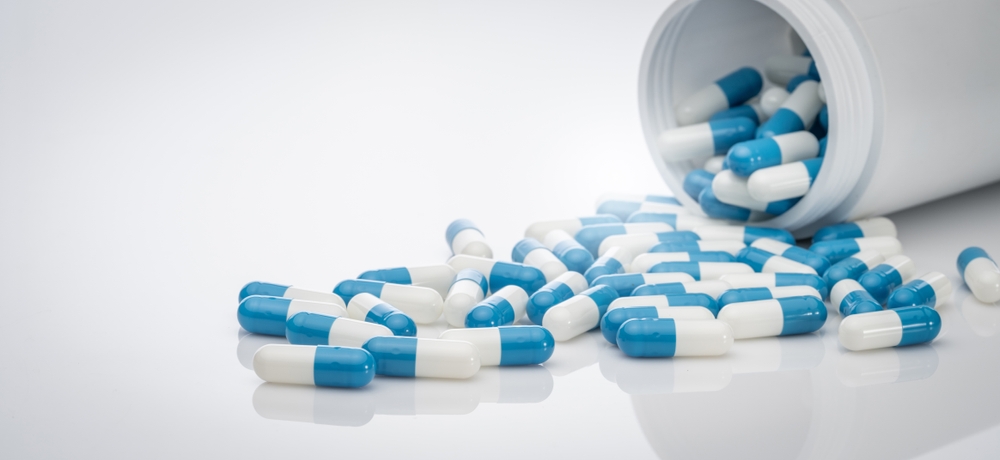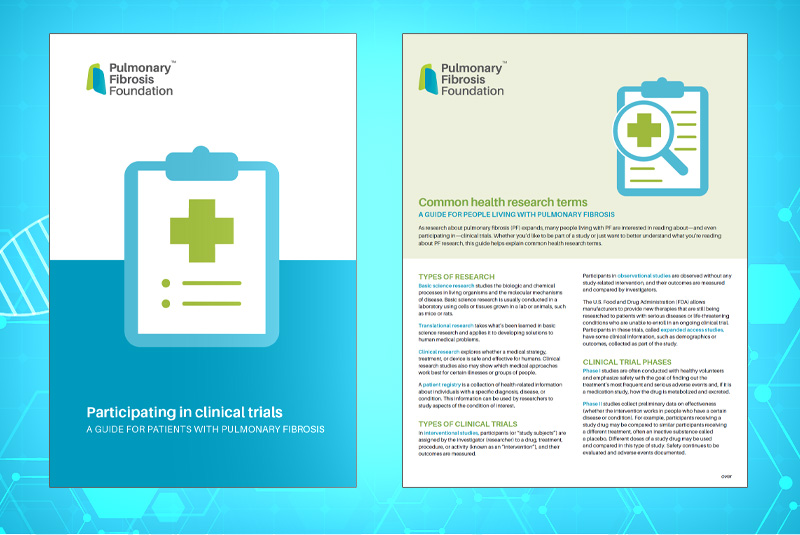Clinical Trials Education Center
What is a clinical trial?
Clinical trials for pulmonary fibrosis (PF) and interstitial lung disease (ILD) are research studies that explore whether a medical strategy, treatment, or device is safe and effective for humans.
Is it safe?
Clinical trials follow very strict scientific standards. Before enrolling, you’ll be provided with information about the potential benefits, risks, and alternatives to participation.
Why should I participate?
Participating in a clinical trial is one of the most powerful ways to volunteer for the quest for new treatments. By participating, you’ll be contributing to medical advancements that can benefit future generations.
Where can I learn more?
The PFF offers a wealth of information about clinical trials. Start by downloading our comprehensive guide to clinical trials to read up on everything you need to know!
Find a trial near you
Want to see if there are any active PF or ILD trials near you? Use the interactive Google Map! Type in your zip code to find trials in your area. Once you find one, you can click “see details” for more information.
Clinical trials of the month
Each month, the PFF highlights trials actively recruiting in our Clinical Trials Blog. Check it out to see monthly highlights, new resources, research updates, and patient stories.


What clinical trials for PF are currently underway?
Researchers are making great strides in the search for new treatments for PF and ILD. We have an interactive tool, the Drug Development Pipeline, that allows you to see the latest progress in drug development.
The PFF Community Registry
The Pulmonary Fibrosis Foundation is leading the fight by funding promising research and we need your help.
One of our key research programs is the PFF Community Registry. We invite eligible participants to join by completing a series of simple surveys. Your survey responses will be used by researchers to better understand how PF and ILD progress over time, respond to treatments, and how the diseases affect individuals. The more individuals who join and provide responses, the closer we come to a cure.
Eligible participants include:
- Patients living with PF and ILD
- Lung transplant recipients who have had PF or ILD
- Caregivers and biological family members of patients with PF or ILD, including those who have passed away
Enrolling in the PFF Community Registry is entirely online. All you need is internet access. Learn more about this groundbreaking program by visiting the PFF Community Registry homepage.


Additional resources
For a more in-depth guide to clinical trials, you can download our resources. All educational materials from the PFF are free to download as PDF documents.
Select from the following:

